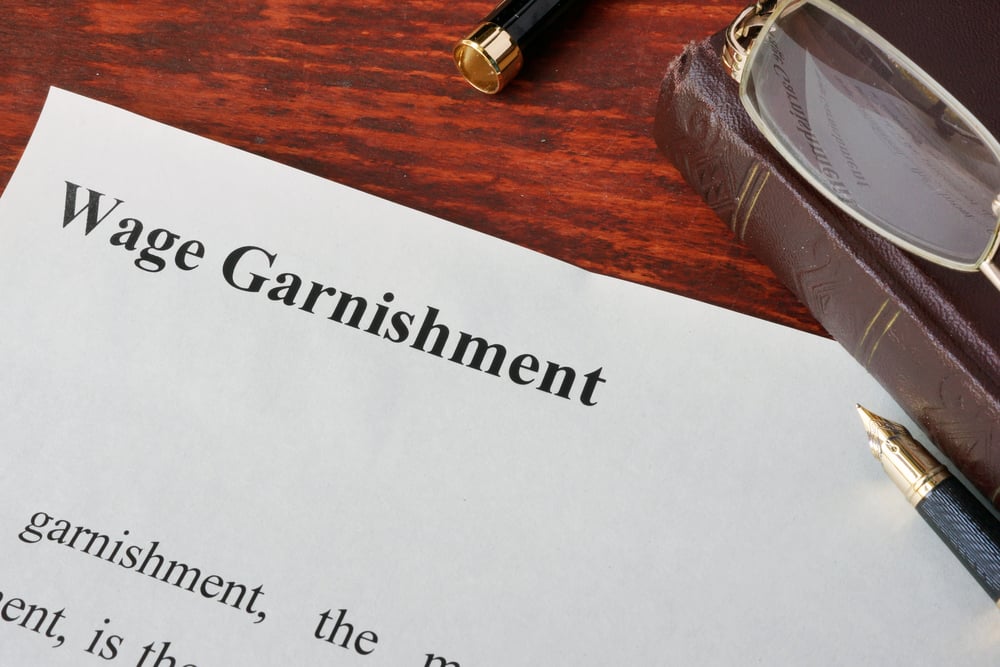
Creditors generally have a variety of options to collect on debts owed to them. Among them, wage garnishment is one that is used the most often to get money from debtors.
However, the state of Texas has unique laws when it comes to if and to what extent a creditor can utilize wage garnishment to collect on a debt. The laws in this state also stipulate how much certain creditors can take from the paychecks of debtors.
Garnishment Laws in Texas
When it comes to the garnishment of people’s incomes, Texas has some of the strictest laws in the country. Specifically, it bars creditors like banks, credit card companies, and utility companies from garnishing the wages of Texas residents. If people who live in Texas owe a debt to these types of businesses, they avoid the worry of their wages being garnished in order to repay what they owe.
Under Texas law, the only debts that can be repaid through wage garnishment are:
- Defaulted student loans
- Alimony
- Child support
- State or federal income taxes
If employers receive garnishment notices for other kinds of debts like credit card bills or defaulted medical expenses, they are not obligated to comply with them unless they are ordered to by a federal or local court. Even if they are ordered to garnish employees’ wages, Texas employers are limited by law in how much they can withhold.
In fact, creditors who are successful in getting garnishment orders against debtors in Texas must by state law leave enough money in people’s paychecks to support themselves and their families with satisfactorily. This amount outlined by state law is equal to 30 times the minimum wage in Texas.
Allowable Garnishment Amounts in Texas
Texas state law restricts the amount of money that a creditor can garnish from a debtor’s paycheck. The amount is based on the type of debt that is owed.
For example, Texas permits debtors to collect up to 50 percent for obligations like child support or alimony. This 50 percent maximum applies to each paycheck regardless of how many domestic obligations a person owes.
People who have defaulted student loans face having up to 15 percent of their paychecks garnished in Texas. This percentage applies regardless of how much the person owes or how many loans are in default.
The garnishment laws in Texas are applied differently when you owe back taxes to the IRS. In fact, the IRS can garnish your paychecks without a court order. Texas garnishment laws do not apply to a federal income tax debt.
Further, your wages can be garnished if you owe state or local taxes in Texas. Overall, however, the amount that can be garnished from your paycheck for other debts like alimony and child support will depend on factors like the number of dependents you have and your current deduction rate.
Restrictions on Job Termination
When you are served with a notice of your wages being garnished, you may fear that your employer will fire you. After all, you may realize that it can be a hassle for your employer to withhold the required amount in order to pay back the debtor.
However, you are protected from termination from your job by Texas state law. In fact, the laws in Texas prevent employers from firing employees who are garnished for the first time. If you are served with subsequent garnishment orders, your job may not be as safe. Employers have the option of firing you for being garnished a second, third, or more times.
Likewise, an employer cannot discipline you or refuse to hire you if you are being garnished for the first time. You can find out more about job protections for garnished employees by contacting the Texas Workforce Commission or the Texas attorney general.
Wage Garnishment Exemptions and Non-Exemptions
Under the state laws in Texas, debtors must abide by certain exemptions and non-exemptions when it comes to collecting a debt. These circumstances apply to the types of income that people receive with which to support themselves.
For example, Social Security can only be garnished to collect on certain types of federal debts. Specifically, these debts are:
- Child support
- Alimony
- Student loans
- Back IRS taxes
Likewise, pensions are typically exempted from being garnished in Texas. This exemption especially applies if the pension is paid out by a federal government employer. Tax-deferred retirement benefits are also exempted from being garnished for most debts.
Additionally, people who receive public assistance and benefits also cannot be garnished. These sources of income include:
- Workers compensation
- Unemployment
- Aid to Families with Dependent Children
- Medical assistance benefits
Texas exempts many types of insurance policies, health benefits, and annuities from being garnished. Other types of insurance payments and annuities may not necessarily be exempt from being garnished, however.
Statute of Limitations for Wage Garnishments
Creditors are not given free reign to collect on debts unrestrained. In fact, they are bound by statutes of limitations that prevent them from pursuing garnishment orders past a certain amount of time.
For example, Texas limits most types of debt garnishments to four years. After the four-year mark, creditors have to write off the debt and relinquish any claims to garnishing debtors’ wages for the outstanding balance.
Other types of debts, specifically federal debts like student loans and child support, can be collected on for 10 years. The creditor has 10 years from the time the person accrues the debt to collect on it through wage garnishment. After 10 years has passed, the creditor has no legal claim to garnish the debtor’s wages.
Avoiding Garnishment
While Texas has stringent laws that protect many debtors from having their wages garnished, it can be best for you to avoid the risk of wage garnishment altogether. The best way to avoid having your wages garnished is to simply pay what you owe to your creditors. If there is no outstanding balance, the creditor has no reason to pursue wage garnishment against you.
If you cannot pay what you owe, you should work out a payment agreement with the creditor. Making regular payments on what you owe also could prevent your wages from being garnished.
Texas utilizes strict laws to limit the garnishment of residents’ wages in the state. It only allows certain creditors to take this collective action against debtors. It also limits how much and for how long a wage garnishment can be collected on for many types of debts.




